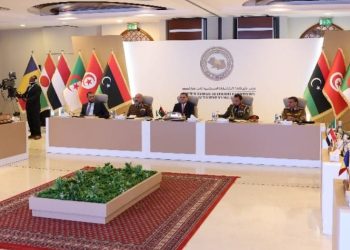By Seraj Essul.
Tripoli, 11 June 2014:
The Libyan AIDS Sufferers Support Association held a demonstration in Tripoli today demanding medicines, transparency and . . .[restrict]attention by the Ministry of Health.
The demonstration, attended by only thirty or so people, partly due to Tripoli’s petrol crises, was held opposite the Libyan National Infectious Diseases Control Centre (www.nidcc.org.ly) near the Gurji-Sports City roundabout.
Speaking at the demonstration exclusively to Libya Herald, Fathi Belhaj, one of the coordinators, said that the group had three main demands.
The most pressing demand of Libya’s AIDS sufferers, said Belhaj, was the uninterrupted provision of medicine. The AIDS medicine supply, he claimed, had stopped for two months in 2014, leaving sufferers stranded. Moreover, when supplies did eventually arrive, he added, there was only supply for eight months.”We asked them what did they expect AIDS patients to do for the other four months of the year?”, said Belhaj.
The Association also demanded that the government prepare for 2015 and ensure that supplies of medicines will be available for all AIDS sufferers throughout the year.
Belhaj said that Libyan AIDS sufferers, often inadvertent victims of the disease through blood transfusions, contaminated health facilities or instruments, and mostly shared drug syringes, need an independent authority to fight and deal with AIDS and to deal with AIDS patients.
They also need a specialist AIDS centre to treat drug addicts and specifically those sharing contaminated syringes.
Belhaj complained that neither the Ministry of Health nor the NIDCC were keen that the AIDS Association made too much noise about the issue of AIDS in Libya. The subject did not seem to have a high priority with them, he implied.
Belhaj told this publication that his organization has seen unpublished internal NIDCC statistics that show that approximately 100 new cases of AIDS are recorded every month, overwhelmingly by drug users that share syringes. He implied that the authorities were not too keen to publicize these statistics.
There could be more unrecorded cases he then added, speculatively.
He further complained that the Ministry of Health has been unresponsive to their Association’s demands and has been generally uncooperative and unforthcoming.
Meanwhile, another demonstrator told Libya Herald, anonymously, that AIDS sufferers are “neglected in Libya. They are treated like social outcasts. They get no work, no help, no marriage, no medicine”.
The reference to “no marriage” was in regard to the fact that before any marriage is officially registered in Libya prior to a wedding, both potential spouses are required to present an AIDS-free health certificate. This naturally precludes all AIDS sufferers from the ability to officially or legally at least, get married.
Belhaj reported that the AIDS Association will continue their demonstration next Friday at Martyr’s Square in the hope of delivering the message to the general public that AIDS does exist in Libya and that it is spreading.
This is in contrast to the stance adopted by the government, he said, that “nothing is happening and that things are ok”.
In December 2013, another AIDS/HIV sufferers’ NGO held a demonstration pleading that Libyan sufferers are supported and not punished. [/restrict]









